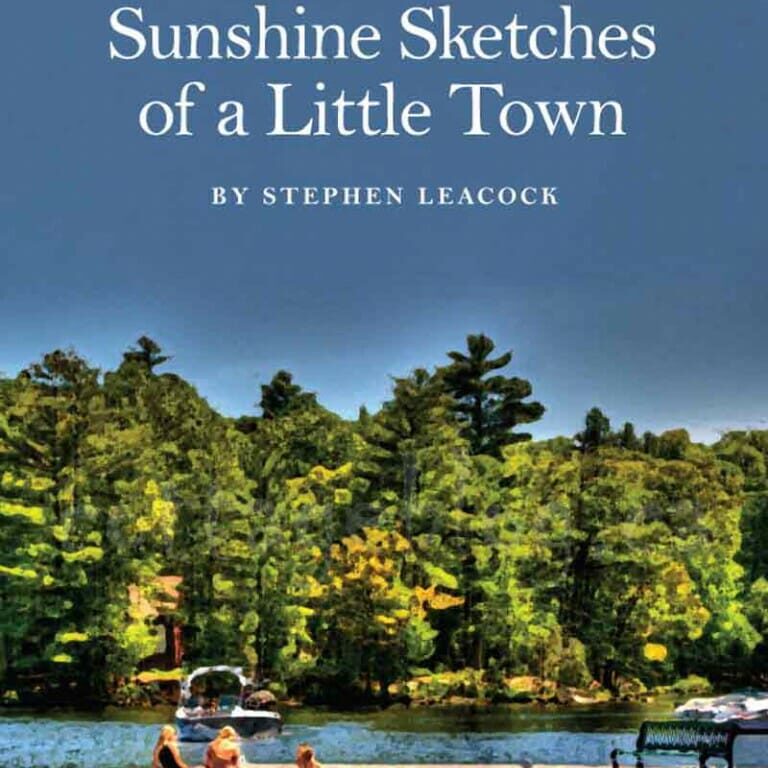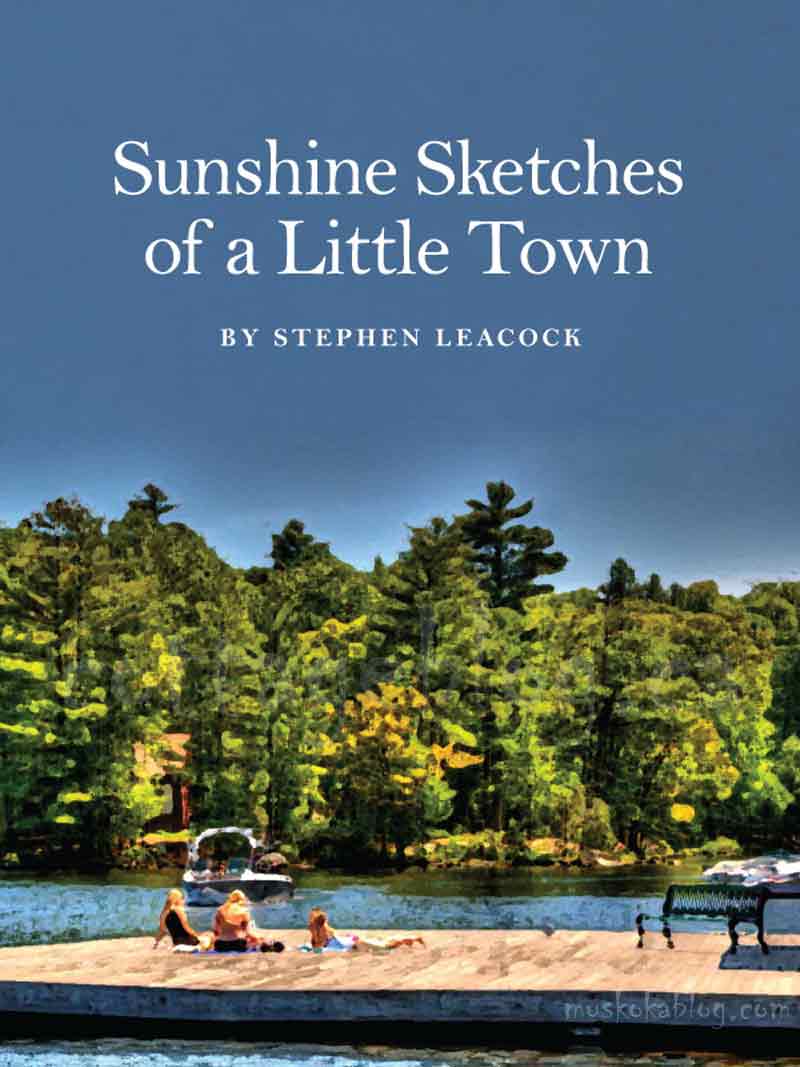
Another day, another fabulous p-book (that’s publisher-speak for “printed book”) proving the continuing relevance of print medium releases on the Canadian literary market. Readers, this is one for the book(shelve)s.
Over 100 years after its first publication in 1912, Stephen Leacock’s Sunshine Sketches of a Little Town should still be required reading for anyone growing up in small-town Ontario. Bitingly satirical, witty and hilarious, Leacock’s portrait of life in fictional Mariposa showcases the social relations and stock characters consistent with many small towns. As Leacock himself argues in his introduction, if you’ve lived in one small Canadian community, you are naturally equipped with a general sense of what the others are like. Whether or not we accept this as true, this satire makes for hilarious reading.
McClelland and Stewart has recently published a new edition of Sunshine Sketches, augmented by illustrations from Guelph-based Canadian artist Seth. This book is tangible proof that the physical novel is still relevant as a medium for telling stories. Without infringing on Leacock’s classic narrative, Seth pencils in a contemporary flavor, engaging in a dialogue between the text and its illustrations.
This dialogue is set up at the very beginning of the book with a framing illustration: we see a tiny farming community gain roads, then cars, and eventually be obliterated completely by the presence of a steam engine train roaring across the landscape. Without adding anything to the original text, Seth sets the reader immediately to thinking about the impact of growth (technologically and demographically speaking) on the Ontarian landscape—an issue that certainly resonates with contemporary car culture. (I’m looking at you, Rob Ford.)
These illustrations lend a physicality to the book that simply cannot be accomplished in a digital medium. The gold paper on the cover of the book, the hard line you can trace your hand over between the different materials, the way we lose one of the members of “the Whirlwind campaign” in the fold of a too-tight spine on pages 112-113, renders the experience of reading this book a physical one. This edition revivifies a century-old story, and it would not have the same effect on-screen.
I’m not saying e-books should be chucked out entirely. Screen reading, whether e-books or online, makes information widely and democratically available—though one could argue that libraries do the same thing. In any case, e-books are here and we have to work with them. However, in the same way that e-books can do things that physical texts cannot, we must remember that the reverse is also true. One is not a substitute for the other. Don’t burn your bookcase just yet.







